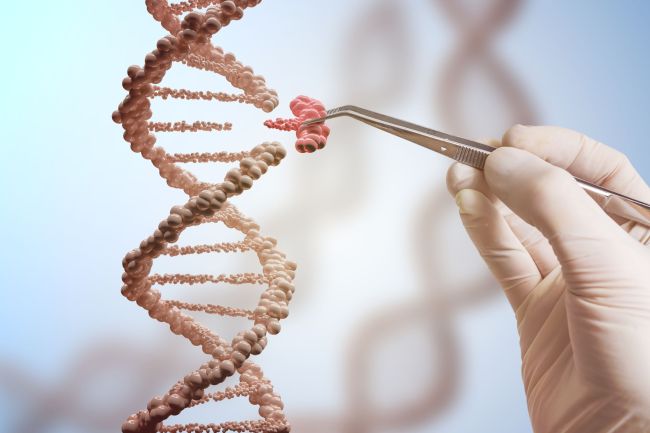South Korea is pushing to ease its bioethics law to allow local scientists and academics to research and develop a wider variety of gene therapies as the country seeks to boost the fast-growing biotechnology sector.
Local lawmakers led by Rep. Shin Yong-hyun of the ruling Democratic Party of Korea on Tuesday submitted a motion to amend Korea’s Bioethics and Safety Act to expand the permitted scope of gene therapy research to include all diseases.
Right now, the act restricts gene therapy research to only those related to genetic diseases, cancer, AIDS and diseases without a viable treatment option, putting a cap on the types of potential treatments and technologies involving gene modification.

Gene editing (123RF)
Under this law, scientists are unable to start preliminary research on gene therapies targeting major illnesses like degenerative arthritis and diseases of the eye that are in need of new, improved treatments.
Shin has proposed adopting a “negative regulation” system for gene therapy R&D. Using this approach, anything is considered legal as long as they are not expressly banned. It differs from “positive regulation” which acts like a whitelist, laying out what it permits and in theory banning anything not covered.
If adopted, the changes are expected to provide Korean scientists with greater freedom to pursue gene therapy research and development for a wider range of diseases and conditions.
“Korea’s current Bioethics and Safety Act places a vague boundary on the type of gene therapy research that can be permitted. Because of this, researchers are afraid to start new research in their field in fear of breaking the law,” Shin said.
“Considering the need to boost our life sciences technology development, we need to adopt a ‘negative regulation’ system for the gene therapy R&D sector,” he added.
Most developed countries outside of Korea do not place limitations on the types of diseases that a gene therapy can be developed for. The US only bans the clinical applications of gene therapies involving embryonic stem cell and germ cells, while permitting privately-funded laboratory-level research.
Korea is considered to possess strengths in gene therapy research, with leadership in areas like the CRISPR-Cas9 gene editing tool that lets scientists edit parts of the genome by removing, adding or altering sections of the DNA sequence.
Despite the technological lead, Korean scientists have long cited difficulties in pursuing gene therapy research due to bioethics regulations that are considered to be more conservative compared to those of other countries like the US, Japan and China.
Those who oppose changes to Korea’s current bioethics law claim that gene editing techniques could be misused as well as create unpredictable side effects in the long run.
Meanwhile, others argue that Korea needs to create a more open environment for developing gene therapies and gene editing techniques if it does not want to lag behind global rivals in the sector.
By Sohn Ji-young (
jys@heraldcorp.com)






![[KH Explains] Hyundai's full hybrid edge to pay off amid slow transition to pure EVs](http://res.heraldm.com/phpwas/restmb_idxmake.php?idx=645&simg=/content/image/2024/04/18/20240418050645_0.jpg&u=20240419100350)